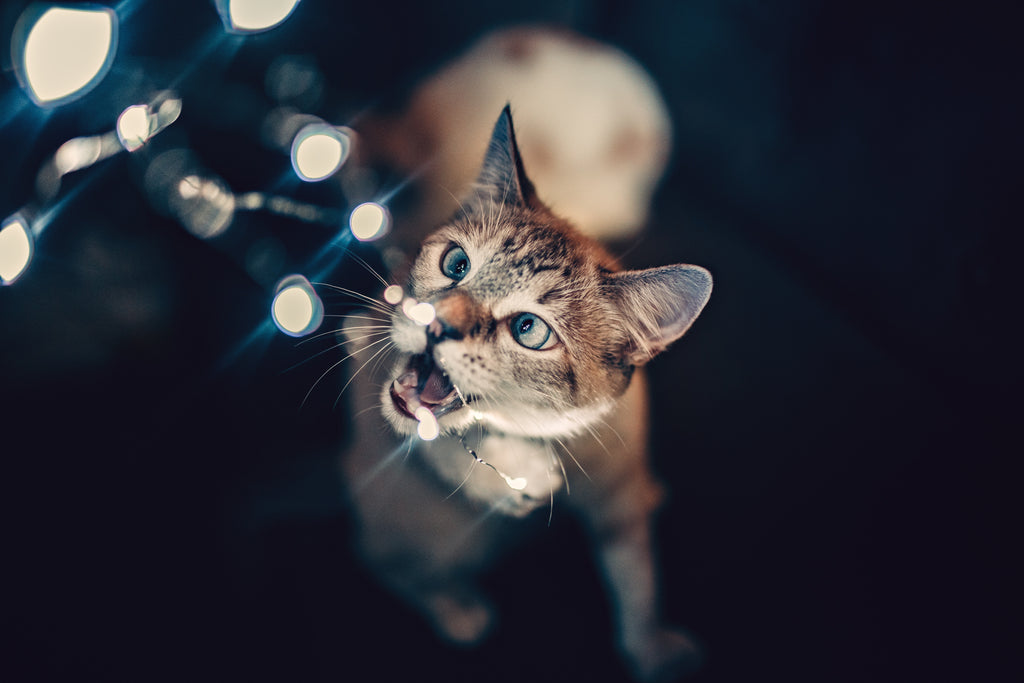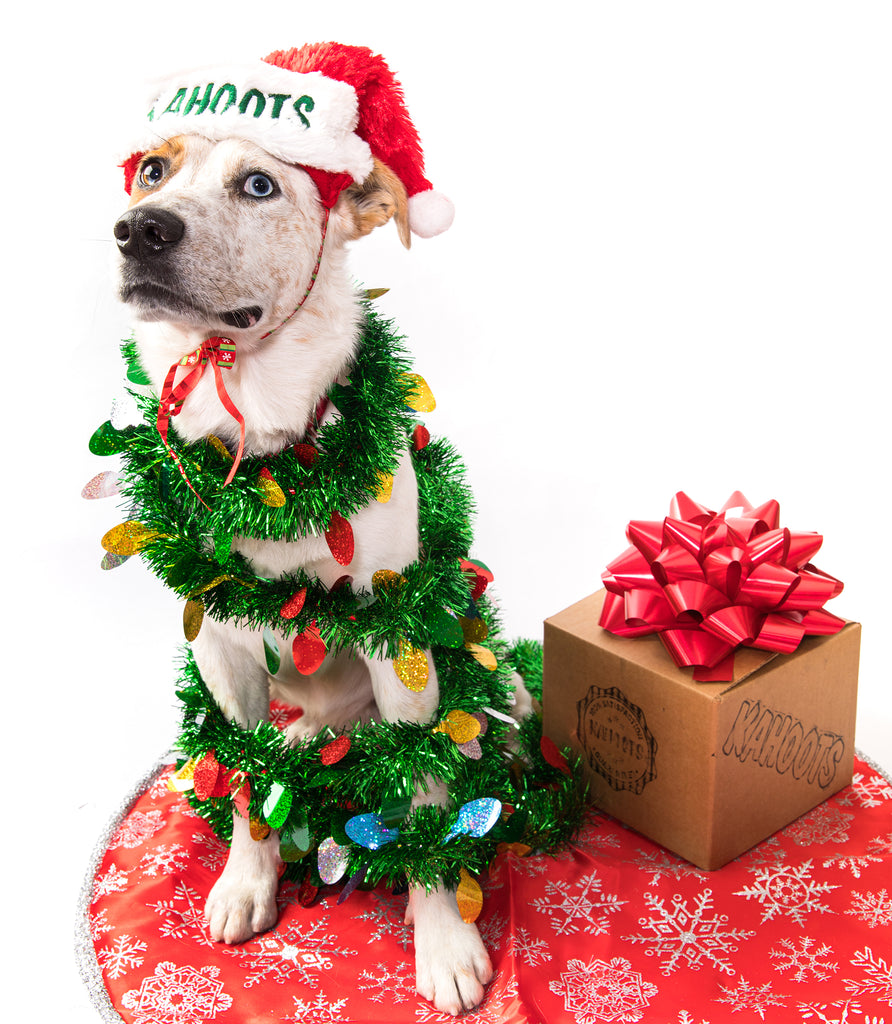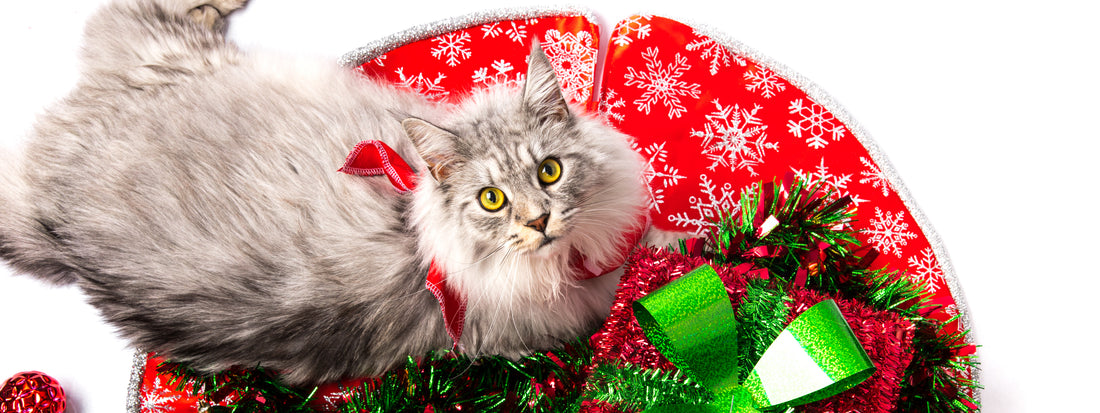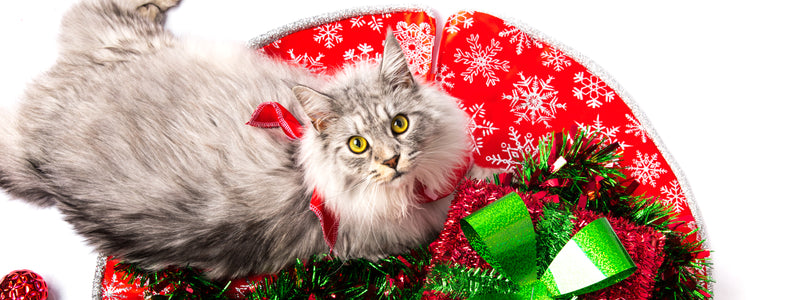You Better Watch Out...
This holiday season is the time to gather friends and family, break out the ornaments, whip up delicious meals, and most importantly, stay out of the vet's office! We all have our own methods to keep a smooth sailing season, but how often do we consider the safety of our pets? Veterinarians are reporting up to 48% more emergency visits during holidays throughout the year and its time we prepare properly for the sake of our furry family members! From decoration dangers to over-treating visitors, this very special time of year can bring about a whole new world of worry for pet owners. Try out these tips to make sure your pet stays safe during tinsel time.
Break Out the Fine China
If you're wondering what could be the leading cause of emergencies in the pet world during times like this, it's most likely on your mind already - food! The holidays often revolve around decadent meals. Aside from the need to add another belt hole, humans generally tolerate these riches better than their pets. Fatty treats like drippings, gravy and fat trimmings may increase your dog’s chances of developing serious health issues such as pancreatitis. Chocolate, artificial sweeteners, uncooked dough, grapes, and raisins may lead to life-threatening problems if eaten by pets. Consider including a Probiotic supplement in your pet’s daily regimen, which may reduce the chances of digestive upset from sharing in holiday excess. Make sure pets stay out of the kitchen and never leave plates unattended within their reach. 
Don't Look at the Light!
I think we can all agree that one of the best parts of the season is brightening up our homes with strands of colorful lights. While these lights are often revered by our astute and "highly enthusiastic" family members (you know who you are), they can present a serious danger to pets. If there’s one thing animals love, it’s chewing, and these electric cords often look like the perfect chew toy. If punctured, batteries used in lighting displays may cause damage to an animal’s mouth and throat, often requiring surgery for removal. To prevent your pet from getting into lights, keep wires, cords and batteries neatly tucked away and out of their reach.
Mistletoe Belongs over Your Head...
Festive plants, such as mistletoe, holly and poinsettia, are often a must when outfitting a home for the holidays – but did you know these plants can prove fatal to pets? Instead of using real plants that are poisonous, try sprucing up your home with artificial ones. Similarly, potpourri and scented wax burners can also be dangerous when ingested by animals, so these accents should be kept in a discreet location and away from prying snouts. Menorahs, candles and other flammable objects would best be kept on a stable surface as animals can knock them over, and nobody wants to see THOSE red and blue lights.
Don't Forget the Tree!
Finally, we come to a very common holiday centerpiece - a Christmas tree . This is an extremely tempting toy with some serious consequences. Cats and rabbits are especially attracted to shiny ornaments and tinsel, both of which can cause damaging gastric complications when eaten. To prevent pets from injuring themselves on ornaments or toppling over the Christmas tree, try building a foil tree skirt that extends at least a foot beyond the tree’s circumference. Most pets will do all they can to avoid the crinkly surface!
This time of year should be one of celebration, not vet visits! Keep your pets safe, your stockings stuffed, and from all of us at Kahoots, we hope you have a wonderful holiday.

Common Holiday Foods to Avoid:
Ham
Cooked bones
Mashed Potatoes
Grapes, Raisins, and Sultanas
Chocolate
Nuts
Caffeine
Uncooked dough/Yeast
Artificial Sweeteners
Salt and Sugar
Milk and Dairy
Onions, Garlic, and Chives
Stuffing
Bacon
Nutmeg
Citrus
Alcohol
Kahooligan Tip - Kahoots Feed and Pet representative Alicia Towkaniuk offered some insight into pet safety during the holidays: “Make preparing your pets for the holidays as much a part of your holiday routine as wrapping gifts or decorating the tree. Talk with everyone in the household about keeping dangerous items and foods out of reach. Post the numbers for your regular vet, a 24-hour emergency vet and the ASPCA Poison Control Hotline (888-426-4438) where they will be easy to find!”


